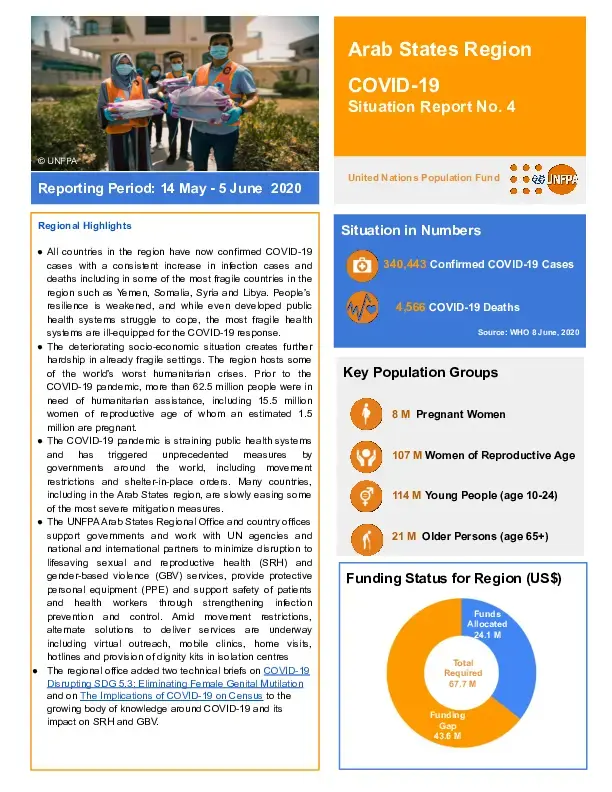Regional Highlights
- All countries in the region have now confirmed COVID-19 cases with a consistent increase in infection cases and deaths including in some of the most fragile countries in the region such as Yemen, Somalia, Syria and Libya. People’s resilience is weakened, and while even developed public health systems struggle to cope, the most fragile health systems are ill-equipped for the COVID-19 response.
- The deteriorating socio-economic situation creates further hardship in already fragile settings. The region hosts some of the world’s worst humanitarian crises. Prior to the COVID-19 pandemic, more than 62.5 million people were in need of humanitarian assistance, including 15.5 million women of reproductive age of whom an estimated 1.5 million are pregnant.
- The COVID-19 pandemic is straining public health systems and has triggered unprecedented measures by governments around the world, including movement restrictions and shelter-in-place orders. Many countries, including in the Arab States region, are slowly easing some of the most severe mitigation measures.
- The UNFPA Arab States Regional Office and country offices support governments and work with UN agencies and national and international partners to minimize disruption to lifesaving sexual and reproductive health (SRH) and gender-based violence (GBV) services, provide protective personal equipment (PPE) and support safety of patients and health workers through strengthening infection prevention and control. Amid movement restrictions, alternate solutions to deliver services are underway including virtual outreach, mobile clinics, home visits, hotlines and provision of dignity kits in isolation centres
- The regional office added two technical briefs on COVID-19 Disrupting SDG 5.3: Eliminating Female Genital Mutilation and on The Implications of COVID-19 on Census to the growing body of knowledge around COVID-19 and its impact on SRH and GBV."


